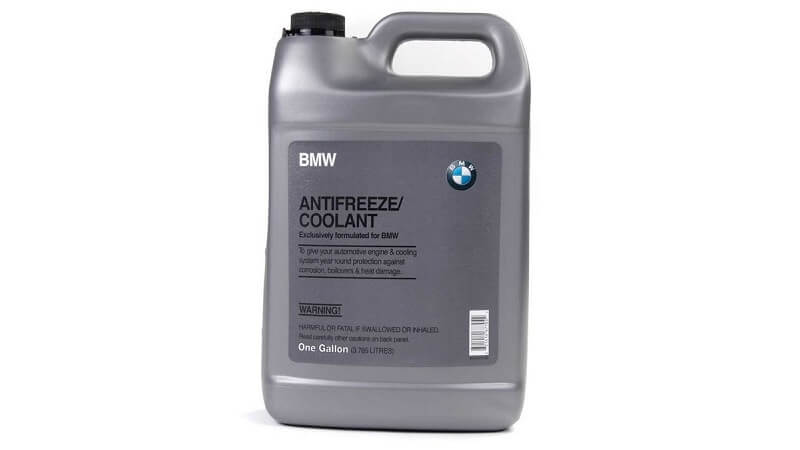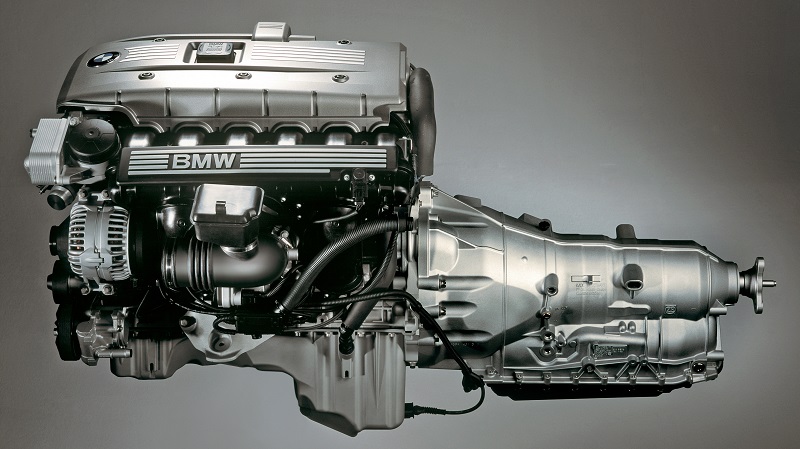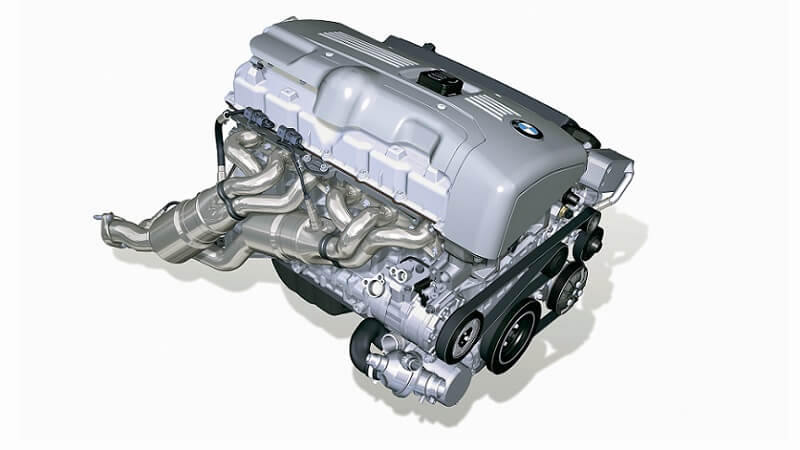Even the mighty shall fall. This simple idiom perfectly encapsulates the state of BMW’s last V12 engine — the N74. Like all manufacturers, BMW is working on electric powertrains that will soon replace today’s petrol-powered engines. Earlier this year, the German manufacturer announced that the N74 will go out of production in 2023 and that it will be the last V12 to be seen on a production BMW.
Since it was first produced in 2008, the N74 has powered multiple models in the BMW 7-Series lineup and select models from Rolls-Royce. This article will look at what the BMW N74 has to offer, what makes it unique, and what you should look out for if you’re in the market for one.

The End of An Era
As we just mentioned, the BMW N74 marks the end of the production of BMW V12 engines. The layout has been in continuous production for the last 35 years and is of notable importance in the manufacturer’s history. Its most coveted accomplishment is perhaps because it powered the McLaren F1; however, the more humble iterations of the engine have a lot to offer, too.
It all started in 1987 with the M70. Looking back, this was a relatively simple engine and essentially a pair of M20 inline-six units that were joined at the crank. However, it set the ball rolling for the V12s to come, and in 1993, BMW introduced its successor, the M73. This engine was a significant step-up in terms of technology and set the benchmark for V12 engines at the time. After a near-decade-long production run, the M73 gave way to the N73.
The N73 was the first mass-produced V12 to use direct fuel injection and also introduced double VANOS and Valvetronic intake control. Midway through the N73s production run, BMW introduced the N74. It represents all that BMW has to offer with a V12 and is the first BMW V12 to feature a turbocharger and an eight-speed automatic gearbox.
Technology Behind the BMW N74
The BMW N74, in many ways, is like two N55 engines that have been joined at the crank. Compared to its predecessor, the N73, it featured twin-turbos — Garrett units on either side of the engine running a boost pressure of 11.6psi — with their own cooling system. To account for the turbos, BMW lowered the compression ratio from the N73’s 11.3:1 to 10:1.
While it featured BMW’s double VANOS system for variable valve timing on the intake and exhaust, the presence of turbochargers deemed the BMW Valvetronic or variable valve lift intake system redundant.
Available Versions
The BMW N74 has seen four versions over the last decade and a half.
N74B60
The N74B60 was the initial version of the engine and was produced from 2008 to 2015. It displaced 5,972 cc and produced peak output figures of 536 hp at 5,250 rpm and 553 lb-ft of torque from 1,500 to 5,000 rpm.
N74B66
Produced from 2009 to 2020, the N74B66 was based on the N74B60 and featured a longer stroke. This resulted in a larger engine displacing 6,592 cc. It was available in three different states of tune peak power ranging from 563 hp at 5,250 rpm to 624 hp at 5,600 rpm. Meanwhile, maximum torque was rated at 575 lb-ft at 1,500–5,000 rpm and 620 lb-ft at 1,500 rpm.
N74B66TU
With production ending later this year, the N74B66TU is the last V12 engine to power a production BMW. This engine made its debut in 2016 and offers 602 hp at 5,500 rpm and 590 lb-ft of torque at 1,500 rpm.
N74B68
The N74B68 made its debut in 2017 and will continue to be manufactured by BMW for the foreseeable future, but it will only power Rolls-Royce models. Output figures are 563 hp at 5,250 rpm and 664 lb-ft of torque at 1,500 rpm.
Which BMWs Use The N74 Engine?

Of the four engine versions, two were made solely for use on BMW-badged cars, while the other two made their way onto Rolls-Royce models.
N74B60
The N74B60 powered the BMW 760i/760Li (F01) from 2008 to 2015.
N74B66
The N74B66 powered multiple Rolls-Royce cars:
- 2010–2020 Rolls-Royce Ghost
- 2014–2020 Rolls-Royce Ghost V-Specification
- 2014–2022 Rolls-Royce Wraith
- 2015–2022 Rolls-Royce Dawn
N74B66TU
The only application of the N74B66TU was on the BMW M760Li xDrive (G12) from 2016 to 2022.
N74B68
The N74B68 powers Rolls-Royce models sold today and will continue to be in production in the immediate future:
- 2017-present Rolls-Royce Phantom VIII
- 2018-present Rolls-Royce Cullinan
- 2021-present Rolls-Royce Ghost
What Are The Most Common BMW N74 Engine Problems?

As you can see, the N74 made its way onto only a select number of models. Since it’s not as common an engine, the number of issue reports by owners was less than what a more mainstream engine like the BMW N20 faced. That said, this isn’t a trouble-free engine, and if you get your hands on an N74 powered BMW 7-Series, there are some things that you might have to deal with.
High-Pressure Fuel Pump Failure (HPFP)
An issue that we found multiple owners report on forums was the failure of the high-pressure fuel pump. The HPFP plays a crucial role in the normal functioning of the N74 as it is responsible for injecting fuel into the engine. The issue is more common on older model-year BMWs and comes with no warning.
The HPFP failure affected select other BMW engines, and the manufacturer replaced the part with a better-engineered one in newer cars.
Unfortunately, you can’t spot an impending fuel pump failure, and there’s nothing you can do to prevent one from happening — you’ll only know once it’s already happened. A fuel pump failure can result in a long crank time and a noticeable drop in power. It may also result in engine stuttering since there’s not enough fuel reaching the combustion chamber. You’re also likely to see the check engine light on the dash illuminate.
Clogged or Leaky Fuel injectors
The fuel injectors work alongside the fuel pump above and are likely to fail on the N74. BMW has made several revisions to the part’s design, and while it has improved reliability, the injectors still do occasionally fail.
Technicians who have rectified the issue on affected cars have found that the most common cause of failure is carbon build-up on the injectors. This can result in the injectors spraying inefficiently. The easiest way to avoid this in your car is to run an ethanol cleaner through your fuel occasionally.
Turbo Failure and Wastegate Rattle
Sometimes, you may be able to find a relatively inexpensive fix to a failed fuel pump or injectors. However, that’s near impossible if something goes seriously wrong with the twin turbochargers on the N74.
A part that’s failed previously on the N74 is the wastegate, which is the component that controls the flow of exhaust gasses. It also controls the turbo’s spool speed. When an actuator rod is worn out, it can cause the wastegate to rattle, and if this isn’t rectified immediately, it will blow the turbos.
A new turbocharger can set you back a few thousand dollars without factoring in the cost of labor involved. Keep an eye for low boost engine codes or rattling noise from the engine.
Water Pump Failure
The N74 uses an electric water pump instead of a conventional chain or belt design. While an electric unit has multiple benefits, it also brings its share of unreliability and issues. The water pump is vital for the regular running of your engine as it keeps the engine at an optimal temperature by pumping water to the radiator.
A well-maintained, trouble-free water pump should last over 100,000 miles, but owners have reported failure as early as after 50,000 miles. A failed water pump will result in an unusually high engine temperature, and sudden coolant levels drop.
Ignition Coil Failure
Much like other BMW engines of this generation, the N74 is known to go through ignition coils and cut their service life in half, if not more. Ignition coil issues are usually sorted out by using quality OEM replacements. Brands like Bosch and their Bosch 0221504470 ignition coils are a pretty durable. The same goes for Delphi and Eldor coils of the same type.
Coolant Transfer Pipe Leak
A coolant pipe leak is typically caused when the front seal on the coolant transfer pipe cracks or fails. While the seal is inexpensive, replacing it is a cumbersome, labor-intensive process.
A leak in the coolant will result in similar symptoms to a water pump failure, including a higher than usual engine temperature and a loud radiator fan. The low coolant light on the dash should also light up when coolant levels drop below the minimum.
The Valve Stem Seals
The N74 is a V12 engine with a DOHC layout, resulting in 48 valves. Each valve has a stem seal that regulates the lubrication of the intake and exhaust valves. These valves also prevent oil in the cylinder head from leaking into the combustion chamber.
Some owners have reported that the stem seals for these valves degraded sooner than expected. If this happens, the oil will leak into the combustion chamber, resulting in added oil consumption and excess smoke from the exhaust.
Can a BMW N74 Engine Be Reliable?
Like any engine, the N74 can be made reliable if it’s maintained well and with quality parts. At Bimmers.com, we offer a wide range of OEM and aftermarket components to ensure your BMW N74 engine gets the most genuine parts in the market.
Head over to our online store, select your car’s model and year using our navigation tool and get a complete list of parts that match your query.





